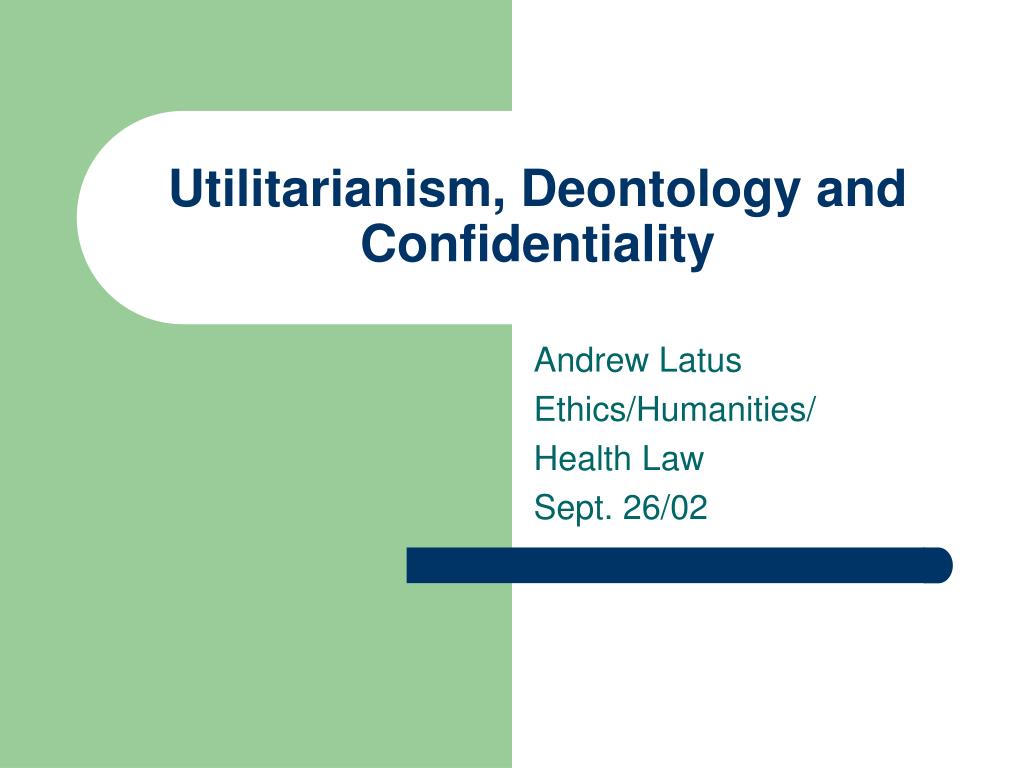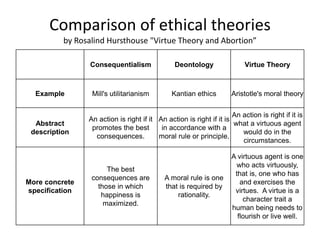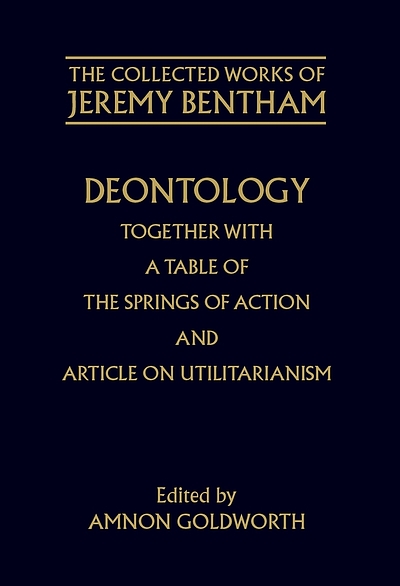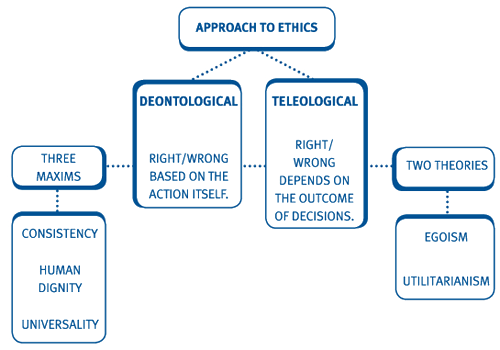Deontology and utilitarianism are two ethical theories that are often compared and contrasted. Both theories attempt to provide a framework for determining what is moral and ethical, but they go about it in different ways.
Deontology, also known as duty ethics, is an ethical theory that focuses on the inherent moral value of actions, rather than their consequences. According to deontology, some actions are inherently right or wrong, regardless of their consequences. For example, according to deontology, it is always wrong to lie, even if lying would result in a positive outcome.
Utilitarianism, on the other hand, is an ethical theory that holds that the best action is the one that maximizes overall happiness or pleasure and minimizes overall pain or suffering. Utilitarians believe that the moral value of an action should be judged based on its consequences, rather than on the inherent moral value of the action itself.
One key difference between deontology and utilitarianism is the way in which they approach moral dilemmas. Deontologists believe that there are certain moral rules that must be followed, regardless of the consequences. For example, a deontologist might argue that it is always wrong to lie, even if lying would result in a positive outcome.
Utilitarians, on the other hand, would approach a moral dilemma by weighing the potential consequences of different actions and choosing the one that maximizes overall happiness or pleasure and minimizes overall pain or suffering. In the example of lying, a utilitarian might argue that lying is acceptable if it leads to a greater overall benefit, such as preventing harm to someone else.
Another key difference between deontology and utilitarianism is their view of moral responsibility. Deontologists believe that individuals have a moral duty to act in certain ways, regardless of the consequences. For example, a deontologist might argue that a person has a moral duty to tell the truth, even if telling the truth would result in negative consequences.
Utilitarians, on the other hand, believe that moral responsibility lies with the overall consequences of an action. In other words, if an action leads to a greater overall benefit, then the person who performed the action is considered morally responsible, even if the action itself might not be considered inherently moral.
There are also some notable criticisms of both deontology and utilitarianism. Deontology has been criticized for being too rigid and for not taking into account the potential consequences of actions. Utilitarianism, on the other hand, has been criticized for being too focused on the overall consequences of actions, rather than the inherent moral value of the actions themselves.
In conclusion, deontology and utilitarianism are two ethical theories that approach moral dilemmas in different ways. Deontology focuses on the inherent moral value of actions, while utilitarianism focuses on the consequences of those actions. Both theories have their own strengths and weaknesses, and it is ultimately up to each individual to decide which theory aligns best with their own moral beliefs.







